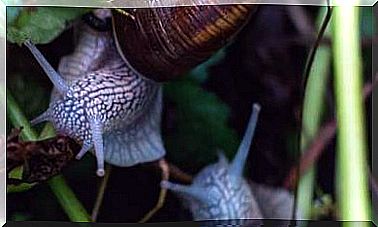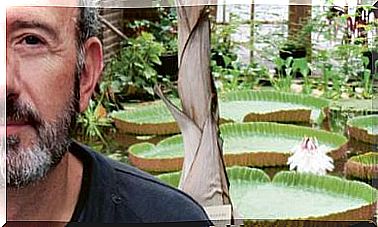False Alarm: Lectins In Legumes And Cereals Are Not To Blame For Everything
The book “The Plant Paradox” points to lectins as the culprit of practically all diseases, but recognized doctors and nutritionists are not agree.

In the world of nutrition, good, bad and contradictory news happen to the point that it is difficult to know what to expect.
One of the latest bombs appears in Dr. Steven R. Gundry’s book, The Vegetable Paradox (Ed. Edaf), where he “discovers” a new family of supposed enemies of health in the foods we consider healthier.
According to this surgeon and former professor at Loma Linda University, being overweight, autoimmune diseases and, in fact, most diseases, would be caused by plant foods that contain substances called lectins.
Are lectins harmful or beneficial?
Gluten intolerance and sensitivity would be just the tip of the iceberg of a much bigger problem. Gluten is a lectin, but there are thousands of others lining up in many plant foods.
They are found mainly in cereals, legumes and potatoes, and also in some fruits, vegetables and nuts. Therefore, if they really are a problem, this is very bad news for people who follow a plant-based diet.
Gundry explains that the role of lectins in plants is to defend them from the animals that eat them. And just as they feel bad – or very bad – to animals, they would produce negative – or very negative – effects on people.
It appears that lectins – or some lectins – could bind to cells of the intestinal mucosa and interfere with the absorption of nutrients, with the balance of the microbiota and with the immune response.
The worst lectins would be found in wheat, corn, dairy products with type A1 casein (most cow’s milk), unfermented soybeans, peanuts, and cashews.
Gundry says that in his consultation he has been able to see how the lectin avoidance protocol solves everything from immune disorders, heart disorders, cancer, deficiencies in child development and serious mental problems to discomfort such as cramps, chills or numbness.
Healthier populations consume more lectins
In the book he offers a lot of advice that contradicts the current recommendations. He assures, among other things, that white rice is better than brown rice, that it is advisable to consume fruits and vegetables without skin, or that you have to take the trouble to eliminate the seeds of peppers and tomatoes. All because of the lectins.
That Gundry is a renowned surgeon and professor gives him credibility with readers, but other leading nutrition experts disagree that lectins are the new “bad” to avoid in the diet.
Dr. Colin Campbell, author of The China Study (Ed. Sirius), professor emeritus of nutritional biochemistry at Unviersidad Cornell and advocate essentially vegetable diet, no doubt qualify as news fake ( “false news”, a term very fashionable in the United States of President Donald Trump) Gundry’s claims.
For Campbell, Gundry’s observations contradict the epidemiological evidence: the populations most exposed to lectins are precisely those with the least obesity, diabetes, and immune disorders; In contrast, the incidence of these diseases is higher in western countries with the poorest lectin diet.
More data: the oldest communities are characterized by a higher consumption of legumes (which have lectins) and hundreds of studies link these foods with a lower incidence of diabetes, heart disease, cancer and being overweight.
The same goes for whole grains. Grundy recommends avoiding them or reducing their consumption, however studies associate them with protection against a wide variety of chronic diseases.
There are not enough studies against lectins
Campbell says that Grundy not only fails to explain these contradictions, but also does not provide quality (peer-reviewed) scientific studies in their favor. In fact, it refers to articles that go against it, such as one that associates a lower intake of whole grains with a greater presence of undesirable bacteria in the intestinal microbiota.
The emeritus professor discovers a number of inaccuracies and errors in Gundry’s book – on lectins and on many other nutritional topics – and does not hesitate to accuse him of “willful neglect” or “staggering incompetence.”
So why have lectins caught Grundy’s attention? Are they totally harmless?
They are not a recent find. Lectins have been known for more than 100 years and form a large family of protein macromolecules, each with different properties and functions.
They are deactivated by humidity and heat
Certain lectins found in legumes are certainly toxic and it has always been known: that is why we soak and cook them, because with humidity and temperature they decompose, associate with carbohydrates and become inactivated.
Dr. Michael Greger, author of Eating to Not Die (Ed. Paidós) among other books, assures that a night of soaking destroys 98% of the lectins and the rest disappear after a quarter of an hour of cooking in water. If they are not soaked, the cooking should last at least an hour, which is the usual practice.
You may wonder if a small amount may remain and if it could be toxic. According to Greger, a small dose of the lectins can even be beneficial.
This is also the opinion of David Jenkins, professor of nutrition at the University of Toronto: “just because a substance interferes in some way with digestion does not mean that it is bad in all respects.” This is the well-known case of fiber, which can reduce iron absorption, for example, but which is very beneficial for the good state of the intestinal microbiota.
Some lectins may be anticancer
There are studies that show that lectins isolate tumor cells in the colon, preventing their multiplication. This could be one of the reasons why legume consumption is associated with a lower incidence of intestinal cancers.
A similar anticancer effect could be associated with other non-toxic lectins such as those found in tomato seeds. The interpretation of Michael Greger and David Jenkins is, therefore, completely opposite to that of Grundy.
But Greger counts in his favor with hundreds of studies that associate a plant-based diet with a lower risk of developing certain types of cancer. Lectins may be part of the “blame” for this beneficial effect, along with fiber, minerals, vitamins, and antioxidant compounds found in plant foods.
In conclusion, we can say that the book The Plant Paradox of Dr. Grundy is a false alarm or, as some misconceptions suggest – for example, James Hamblin, journalist of The Atlantic – a far-fetched argument to sell the supplements that supposedly inactivate these “lectins bad”.









